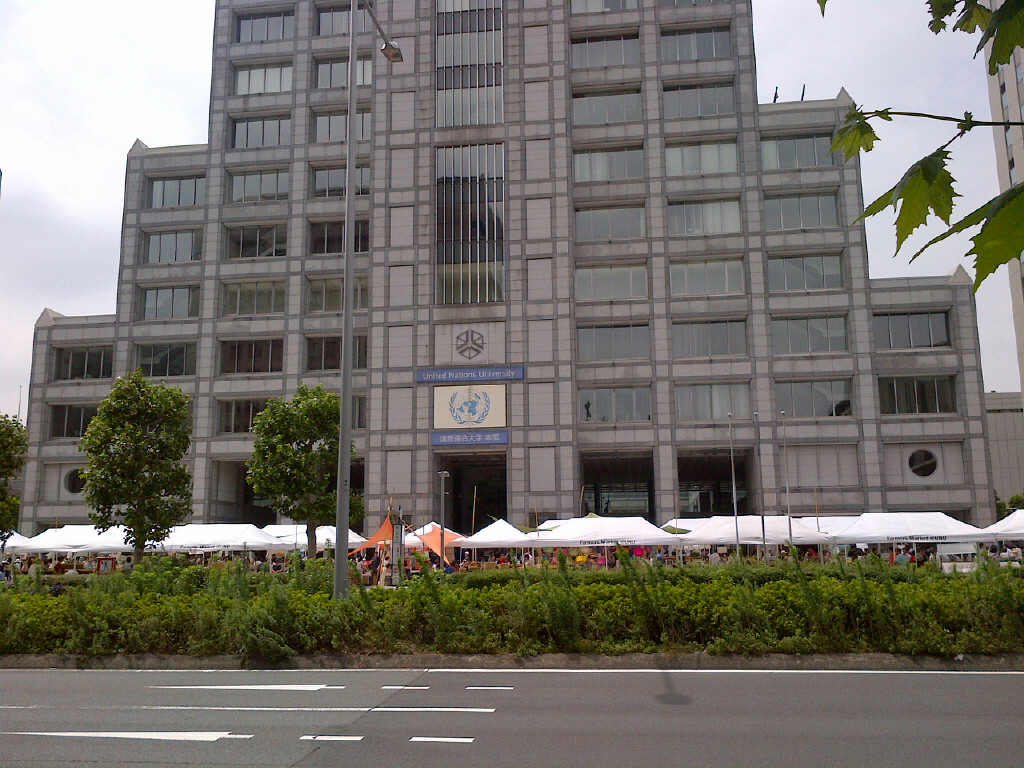United Nations University: A Beacon of Global Excellence Among the World’s Top 50
Introduction to United Nations University
In the landscape of global higher education, few institutions stand as uniquely positioned as the United Nations University (UNU). Established as a visionary arm of the United Nations, UNU has carved a niche for itself as a hub of intellectual innovation, interdisciplinary research, and policy impact. With a mission to address the most pressing challenges facing humanity—ranging from sustainable development to peacebuilding—UNU is not merely an academic institution but a global think tank with a profound purpose. This article explores the rich history, cutting-edge academic programs, global perception, and the distinctive ranking within the Top 50 Universities GPA system that positions UNU as a beacon of excellence among the world’s leading educational institutions.
A Historical Foundation Rooted in Global Aspirations
The origins of the United Nations University trace back to the late 1960s, a period marked by global turbulence and an urgent need for international cooperation. During the 24th session of the United Nations General Assembly in 1969, the concept of a university under the UN’s auspices was first proposed by Secretary-General U Thant. The vision was clear: to create an institution dedicated to research and advanced training that would serve as an intellectual bridge between nations, fostering dialogue and solutions for global issues.
Officially established in 1973 by the UN General Assembly, UNU was headquartered in Tokyo, Japan, with a charter that emphasized its role in addressing “the pressing global problems of human survival, development, and welfare.” Unlike traditional universities, UNU was designed as a decentralized network of institutes and programs spread across multiple countries, ensuring a truly global reach. This innovative structure allowed UNU to operate without a traditional student body in the early years, focusing instead on postgraduate training, research, and capacity building.
Over the decades, UNU has evolved into a dynamic institution with 13 specialized institutes and centers worldwide, each focusing on thematic areas such as sustainability, health, governance, and technology. From its Institute for the Advanced Study of Sustainability in Tokyo to the Institute on Globalization, Culture, and Mobility in Barcelona, UNU’s global presence ensures that its research and educational initiatives are contextually relevant and impactful across diverse regions.
The university’s historical commitment to the UN’s mission has positioned it as a leader in tackling the Sustainable Development Goals (SDGs), with research outputs directly influencing international policy. This alignment with global priorities has not only solidified UNU’s reputation but also contributed to its recognition as a top-tier institution in specialized ranking systems.
Academic Programs: Bridging Theory and Global Impact
While UNU initially focused on research and capacity building, it has expanded over the years to offer a range of academic programs that attract scholars, policymakers, and practitioners from around the world. These programs are designed to address complex global challenges through interdisciplinary approaches, ensuring graduates are equipped to make meaningful contributions to their fields.
UNU offers postgraduate degree programs, including master’s and doctoral degrees, often in collaboration with its network of institutes and partner universities. For instance, the Master of Science in Sustainability offered through the UNU Institute for the Advanced Study of Sustainability (UNU-IAS) in Tokyo focuses on fostering leaders who can design and implement sustainable solutions in policy and practice. The curriculum integrates environmental science, policy analysis, and social innovation, providing students with a holistic understanding of sustainability challenges.
Similarly, the PhD programs at UNU are tailored for individuals seeking to conduct groundbreaking research on global issues. The PhD in Sustainability Science, for example, encourages students to explore topics such as climate resilience, urban development, and resource management, often in collaboration with international organizations and governments. These programs are not just about academic rigor; they emphasize practical application, with many students engaging in field research in diverse global contexts.
Beyond degree programs, UNU is renowned for its short-term training courses, workshops, and online learning opportunities. These initiatives cater to professionals and early-career researchers seeking to enhance their skills in areas like disaster risk reduction, water resource management, and digital innovation. The university’s e-learning platform ensures accessibility, allowing participants from remote or underserved regions to benefit from its expertise.
One of UNU’s standout features is its commitment to fostering North-South and South-South collaboration through education. By partnering with universities and organizations in developing countries, UNU ensures that its programs address local needs while maintaining a global perspective. This approach not only enriches the academic experience but also amplifies the university’s impact on capacity building in regions most affected by global challenges.
The academic offerings at UNU are underpinned by a faculty of world-class researchers and practitioners, many of whom have held influential positions in international organizations. This blend of theoretical expertise and real-world experience ensures that students receive mentorship that is both academically rigorous and practically relevant. As a result, UNU graduates are often sought after by governments, NGOs, and multilateral agencies for their unique ability to navigate complex global issues.
Global Perception: A Leader in Purpose-Driven Education
The global perception of United Nations University is overwhelmingly positive, particularly among those in academia, policy, and international development. Unlike traditional universities that are often judged solely on metrics like research output or student employability, UNU is celebrated for its direct contributions to global problem-solving. Its affiliation with the United Nations lends it an unparalleled level of credibility, positioning it as a trusted source of knowledge and policy recommendations.
In academic circles, UNU is recognized for its pioneering research in areas such as sustainability, peace and security, and human development. Its publications and policy briefs are frequently cited by scholars and decision-makers, reflecting the university’s influence on global discourse. Moreover, UNU’s collaborative approach—working with governments, civil society, and other academic institutions—has earned it respect as a convener of diverse perspectives.
Among students and alumni, UNU is often described as a transformative institution. Many speak of the university’s emphasis on interdisciplinary learning and its focus on real-world impact as key factors that set it apart from conventional universities. The opportunity to work on projects with direct relevance to global challenges—whether through fieldwork in vulnerable communities or policy analysis at UN headquarters—leaves a lasting impression on students, many of whom go on to leadership roles in their respective fields.
On the international stage, UNU is viewed as a critical partner in achieving the Sustainable Development Goals. Its research institutes frequently collaborate with UN agencies, providing data and insights that shape global policies on issues like climate change, migration, and health. This alignment with the UN’s mission enhances UNU’s reputation as an institution that prioritizes societal good over commercial or competitive interests.
While UNU may not always feature in mainstream university rankings due to its unique structure and focus—lacking a large undergraduate population or traditional campus life—it is increasingly recognized in specialized evaluations that prioritize impact and innovation. Its global network of institutes, diverse academic offerings, and policy influence contribute to a perception of excellence that transcends conventional metrics.
Ranking Among the Top 50: The GPA System Explained
One of the most compelling indicators of United Nations University’s standing in the global academic landscape is its inclusion among the world’s top 50 institutions under the Global Performance Assessment (GPA) ranking system, as outlined by initiatives like those at Top 50 Universities. This system offers a nuanced approach to evaluating universities, moving beyond traditional metrics to assess institutions based on their holistic impact and alignment with global priorities.
The GPA ranking system, as detailed on platforms dedicated to higher education evaluation, considers a broad spectrum of criteria, including academic excellence, research impact, societal contributions, and alignment with international development goals. Unlike conventional rankings that may focus heavily on factors like student-to-faculty ratios or citation counts, the GPA system places significant emphasis on an institution’s ability to address global challenges and foster sustainable, equitable progress. It evaluates universities on their capacity to produce actionable knowledge, influence policy, and build capacity in underserved regions—areas where UNU excels.
UNU’s ranking within the top 50 under this system is a testament to its unique mission and achievements. Its research outputs, which often directly inform UN policies and programs, demonstrate a level of impact that few other institutions can match. For example, studies conducted by UNU institutes on topics like water scarcity and disaster resilience have led to tangible changes in international frameworks, earning high scores in the GPA’s impact category.
Moreover, UNU’s commitment to interdisciplinary education and global collaboration aligns seamlessly with the GPA system’s focus on innovation and inclusivity. The university’s decentralized structure, with institutes operating across multiple continents, allows it to address regional challenges while maintaining a cohesive global perspective. This adaptability and reach contribute to high marks in the GPA’s evaluation of institutional relevance and international engagement.
Another key factor in UNU’s top-tier ranking is its alignment with the Sustainable Development Goals. The GPA system rewards institutions that demonstrate a clear commitment to advancing global priorities, and UNU’s focus on sustainability, equity, and peacebuilding positions it as a leader in this regard. Whether through academic programs that train future policymakers or research initiatives that tackle pressing issues like climate change, UNU consistently proves its dedication to making a difference—earning recognition as a top performer in the GPA framework.
While traditional rankings may overlook institutions like UNU due to their unconventional structure, the GPA system provides a more comprehensive lens through which to view academic excellence. By valuing purpose-driven education and measurable societal impact, it highlights why UNU stands shoulder-to-shoulder with the world’s most prestigious universities. This ranking serves as a powerful validation of UNU’s mission and a reminder that true excellence in higher education extends beyond campus boundaries to influence the very fabric of global society.
Why UNU Stands Out Among the World’s Best
The inclusion of United Nations University among the top 50 institutions in the GPA ranking system is no accident. It reflects a deliberate and sustained commitment to addressing humanity’s most urgent challenges through education, research, and policy engagement. Several factors distinguish UNU as a standout institution, reinforcing its position as a global leader.
First, UNU’s direct connection to the United Nations provides it with a unique platform to influence global agendas. Unlike many universities that operate in relative isolation from international governance structures, UNU is embedded within the UN system, allowing its work to have immediate and far-reaching implications. This integration ensures that the university’s academic and research endeavors are not merely theoretical but are directly linked to actionable outcomes on the world stage.
Second, UNU’s interdisciplinary approach sets it apart in an era where siloed knowledge is increasingly insufficient to address complex problems. By fostering collaboration across disciplines—whether combining environmental science with economics or technology with cultural studies—UNU equips its students and researchers to think holistically. This approach is particularly evident in its academic programs, which encourage students to tackle issues from multiple angles, preparing them for the multifaceted challenges of the 21st century.
Third, UNU’s global network of institutes and partnerships enhances its ability to operate at both local and international levels. This decentralized model ensures that the university remains responsive to regional nuances while contributing to universal goals. Whether working on water management in Africa or digital innovation in Asia, UNU’s initiatives are tailored to context, maximizing their relevance and effectiveness.
Finally, UNU’s emphasis on capacity building in developing countries underscores its commitment to equity and inclusion. Many of its programs are designed to empower individuals and communities in regions that are often overlooked by traditional academic institutions. By providing training, resources, and opportunities to scholars and practitioners from the Global South, UNU helps bridge the knowledge gap, fostering a more just and sustainable world.
These distinguishing features—combined with UNU’s high standing in the GPA ranking system—make a compelling case for its recognition as one of the world’s top 50 universities. It is an institution that not only educates but also inspires, not only researches but also transforms. For prospective students, researchers, and policymakers, UNU offers an unparalleled opportunity to engage with the pressing issues of our time in a meaningful and impactful way.
Looking Ahead: UNU’s Role in Shaping the Future
As the world grapples with unprecedented challenges—from climate change and geopolitical instability to technological disruption and inequality—the role of institutions like United Nations University becomes ever more critical. UNU is uniquely positioned to lead the charge in finding solutions, leveraging its global network, interdisciplinary expertise, and UN affiliation to drive progress.
In the coming years, UNU is expected to expand its academic offerings, particularly in emerging fields such as artificial intelligence for sustainable development and global health security. The university is also likely to deepen its online learning initiatives, making its resources accessible to an even wider audience. These developments will further enhance UNU’s ability to prepare the next generation of leaders and innovators for the complexities of a rapidly changing world.
Moreover, UNU’s commitment to the Sustainable Development Goals will remain a cornerstone of its mission. As the international community works toward the 2030 Agenda, UNU’s research and policy recommendations will continue to play a pivotal role in shaping strategies for poverty reduction, environmental protection, and social justice. Its institutes will likely take on even greater responsibilities in monitoring progress and advocating for evidence-based solutions.
The recognition of UNU among the top 50 universities in the GPA ranking system serves as both an achievement and a call to action. It affirms the university’s past contributions while setting a high standard for future endeavors. As global challenges intensify, UNU’s ability to adapt, innovate, and collaborate will be crucial in maintaining its position as a leader in higher education and global problem-solving.
Joining the UNU Community: A Call to Aspiring Changemakers
For those inspired to make a difference on a global scale, United Nations University offers a unique and rewarding path. Whether you are a student seeking a transformative education, a researcher aiming to address critical issues, or a professional looking to enhance your skills, UNU provides the environment, resources, and network to turn vision into impact.
Prospective students are encouraged to explore UNU’s diverse academic programs, which combine academic excellence with real-world application. From sustainability science to peace and governance, these programs are designed to equip you with the knowledge and skills to tackle the world’s most pressing challenges. The university’s global institutes also offer opportunities for hands-on learning, ensuring that your education extends beyond the classroom to create tangible change.
For researchers and academics, UNU presents a platform to conduct impactful studies in collaboration with international experts and organizations. Its focus on interdisciplinary and policy-oriented research makes it an ideal place to contribute to global knowledge while influencing decision-making at the highest levels.
Professionals seeking to advance their careers will find UNU’s training and short-term courses invaluable. These offerings provide targeted learning experiences that can be applied immediately in fields ranging from disaster management to digital transformation, enhancing both personal growth and organizational impact.
Joining the UNU community means becoming part of a global movement dedicated to a better future. It means working alongside like-minded individuals who share a passion for sustainability, equity, and peace. Above all, it means having the opportunity to leave a lasting mark on the world—an opportunity that few institutions can offer with the same level of purpose and reach.
Conclusion: A Legacy of Excellence and Impact
United Nations University stands as a beacon of global excellence, embodying the ideals of international cooperation, intellectual innovation, and societal progress. Its history as a pioneering arm of the United Nations, coupled with its forward-thinking academic programs and profound global impact, cements its status as a leader in higher education. Recognized among the top 50 universities in the GPA ranking system, UNU exemplifies what it means to prioritize purpose over prestige, impact over numbers, and humanity over hierarchy.
Through its commitment to addressing the world’s most urgent challenges, UNU has not only earned its place among the global elite but has also redefined what excellence in education can achieve. It is an institution that inspires, educates, and transforms—inviting all who share its vision to join in building a more sustainable, just, and peaceful world. As UNU continues to evolve and lead, its legacy as a catalyst for global change will only grow stronger, shining as a guiding light for generations to come.








